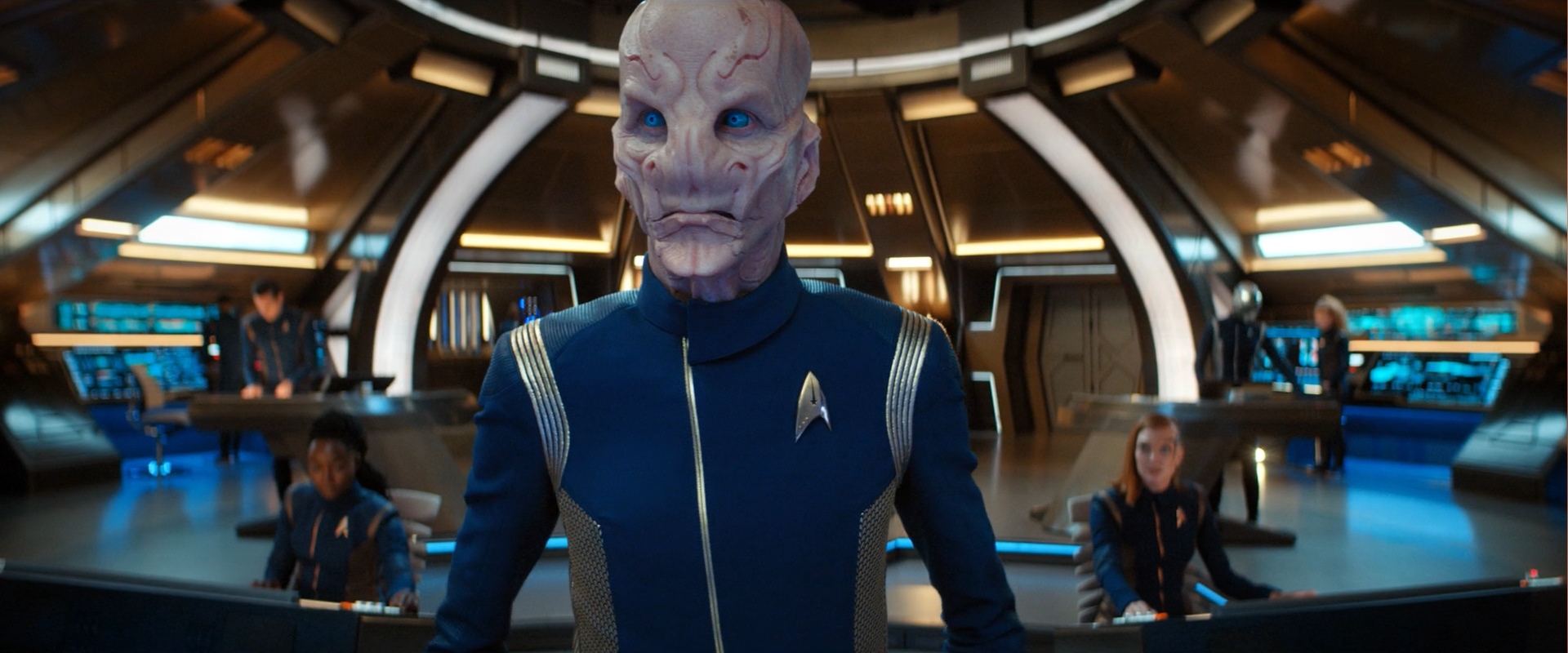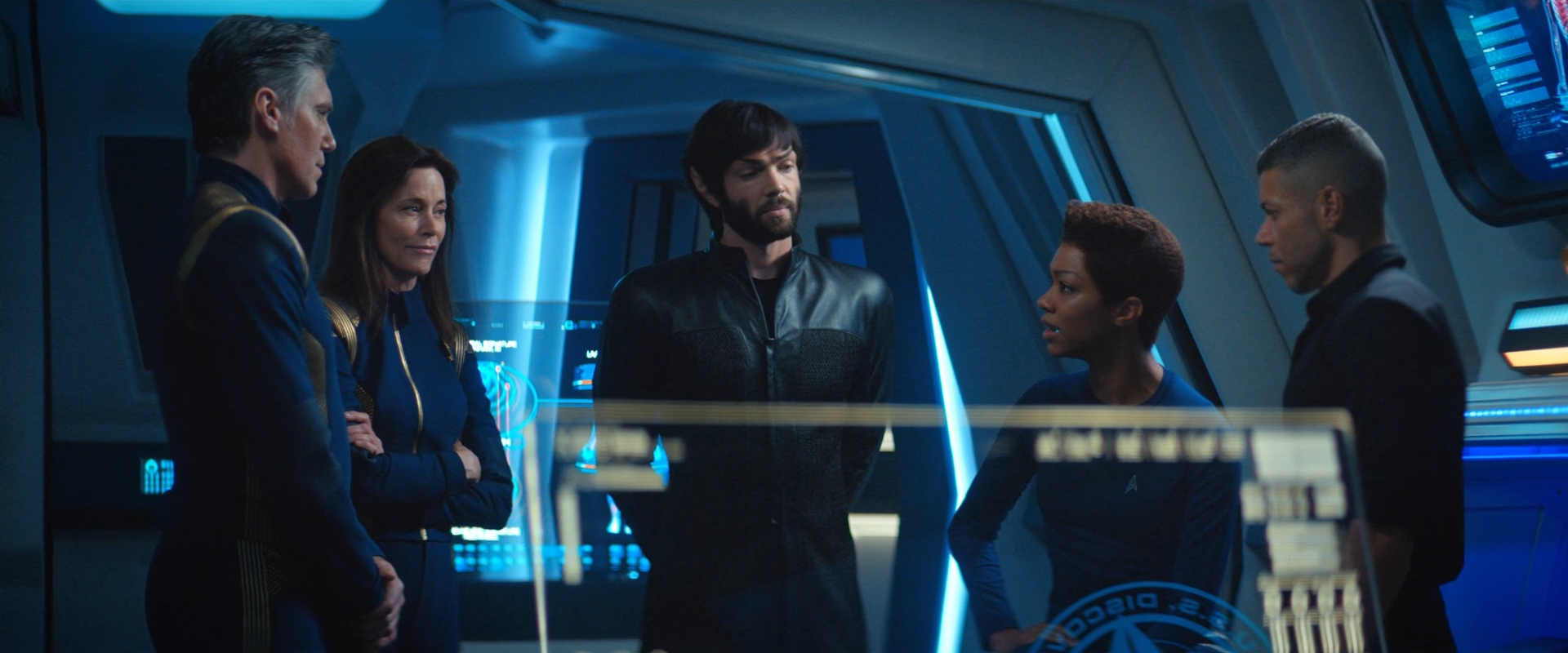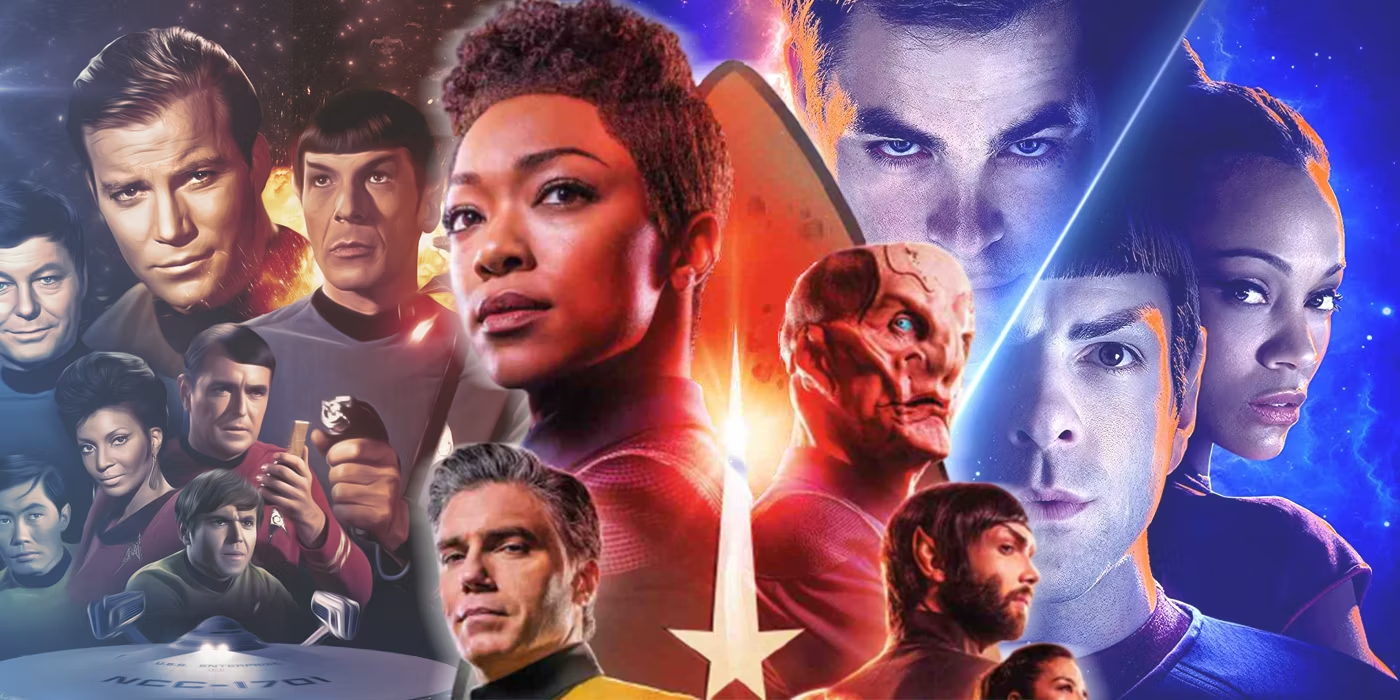The realm of science fiction has long been a battlefield for the most fantastical ideas and expansive universes, with Star Trek and Star Wars standing as colossal pillars of the genre. However, as both franchises continue to evolve, Star Trek: Discovery has carved a niche for itself by focusing on an element that profoundly sets it apart from George Lucas’ creation—its forward-thinking representation of the LGBTQ+ community.
Since the days of William Shatner and Leonard Nimoy, Star Trek has boldly taken fans where no series has gone before. Its latest iteration, Star Trek: Discovery, not only continues this tradition but enhances it, as noted by star Tig Notaro, who plays Commander Jett Reno. Notaro’s role and the show’s commitment to diversity are a testament to how deeply ingrained inclusivity is within the fabric of the Star Trek universe.

Pioneering Diversity in the Final Frontier
Star Trek: Discovery, now in its fifth and final season, has consistently showcased a progressive stance on representation, particularly of the LGBTQ+ community. This commitment has resonated deeply with audiences and actors alike, providing a stark contrast to Star Wars, which has predominantly showcased heteronormative relationships throughout its storied history.
“I have a lot of pride around it. It’s really remarkable how many people it speaks to. And also, even beyond the LGBTQ community, it’s so amazing how the general public and straight men and all of these people don’t even flinch at the world in Star Trek: Discovery, where it’s just presented as a part of everybody’s life and world.
Why Star Trek Holds the Edge Over Star Wars
While Star Wars has enjoyed a larger fan base and perhaps more mainstream success over the years, it is the quiet, persistent pursuit of inclusivity that has given Star Trek: Discovery an edge over its galactic counterpart. Unlike Star Wars, where the expansion of diverse relationships has been slow, Star Trek has boldly integrated these elements into its narrative, reflecting the evolution of society more accurately and empathetically.

This commitment to diversity is not just a subplot within the series but a fundamental aspect that shapes its universe, making it as compelling and relevant as any other mainstream entertainment, appealing to a wide and diverse audience. As Notaro puts it, “It’s not only being watched and followed by one community. I feel like it just speaks across the board.”
The Lasting Impact of Star Trek: Discovery
As Star Trek: Discovery prepares to conclude, it leaves behind a legacy of enlightenment and progress, a beacon for other series and films within the sci-fi and broader entertainment industry. The series not only entertained but also challenged its viewers to think differently about the future—one where diversity and inclusion are not just accepted but celebrated.

Star Trek: Discovery’s unique blend of thrilling space adventures and profound social commentary secures its place not only in the hearts of its fans but also as a pioneer on the frontiers of cultural representation in media. As other franchises continue to develop, they would do well to take a leaf out of Discovery’s book, embracing the rich tapestry of humanity in all its forms.

